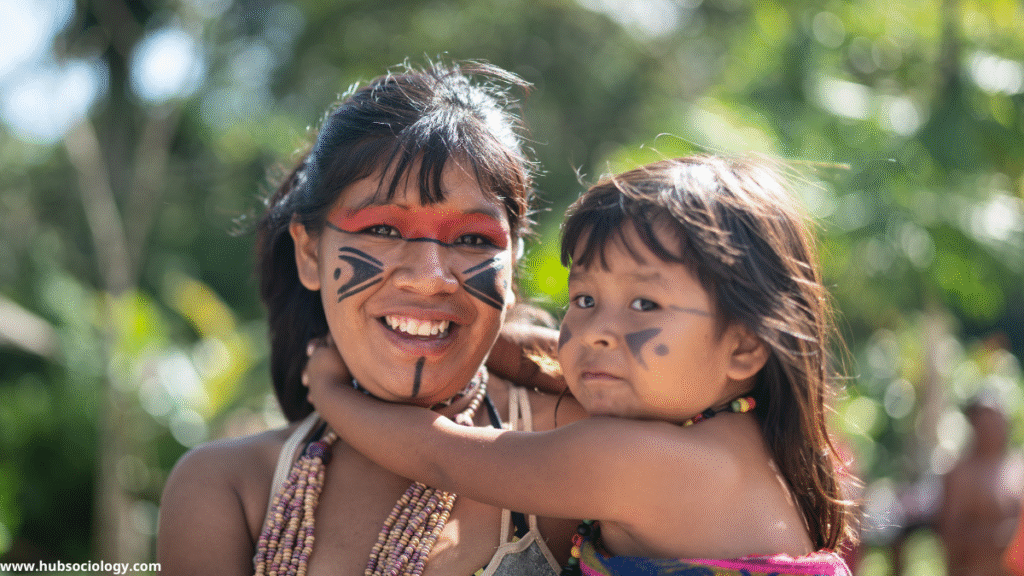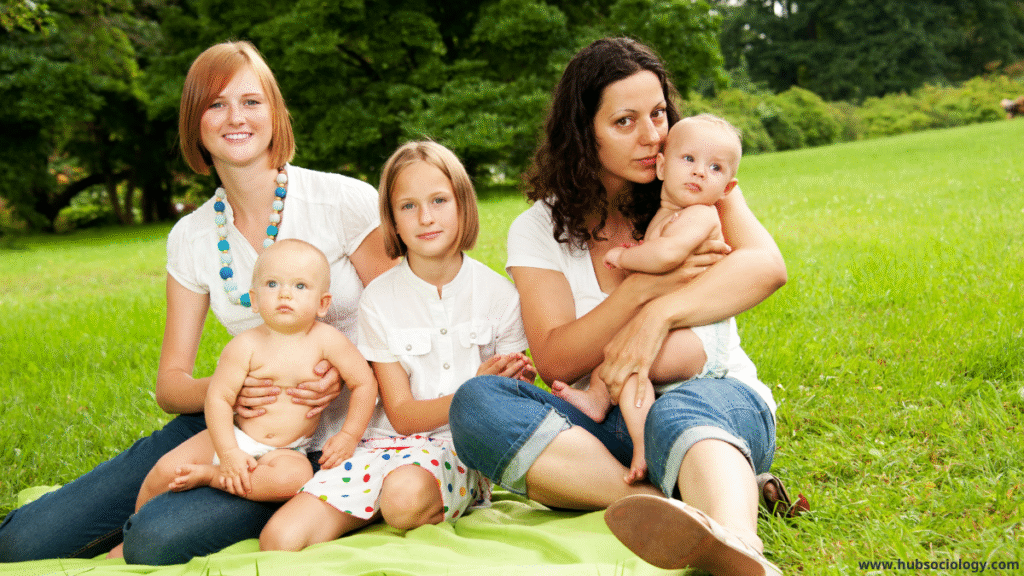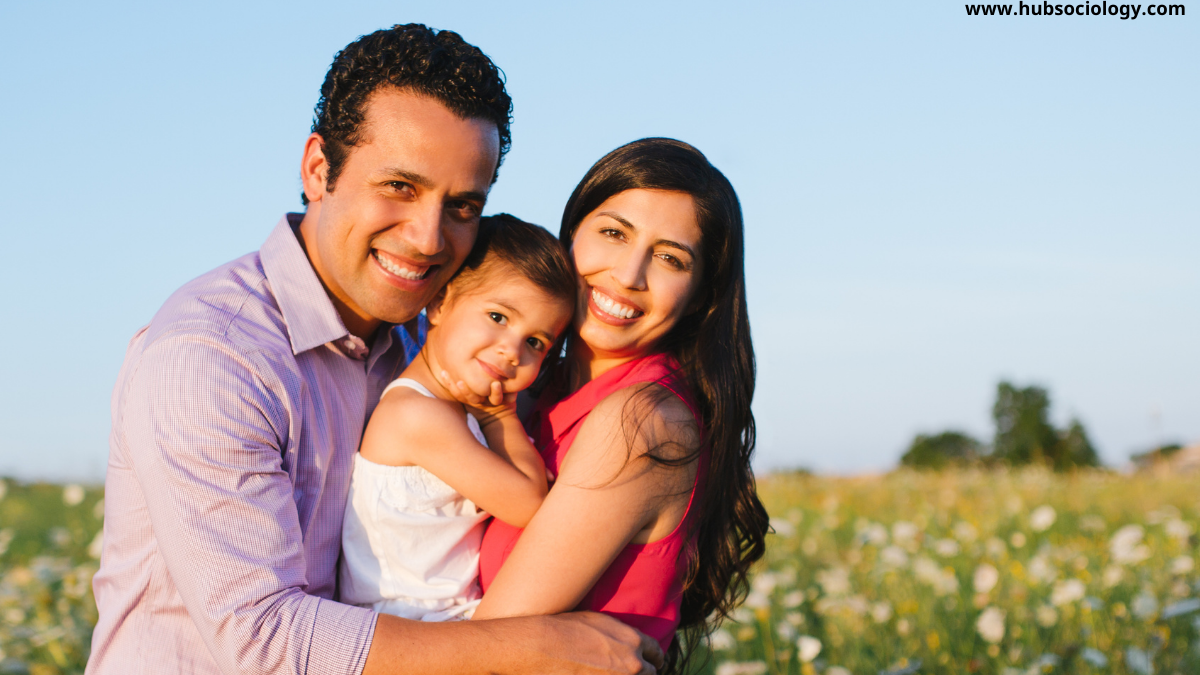Introduction on Family in Modern Society
The family is one of the oldest and most fundamental social institutions, often regarded as the cornerstone of human society. It performs essential functions such as socialization, emotional support, reproduction, and the regulation of behavior. However, in modern society, the structure, function, and meaning of the family have undergone significant transformations. Globalization, industrialization, urbanization, migration, technological advancement, and changing gender roles have reshaped family patterns across the world. Sociologically, the modern family is no longer a static, uniform unit but a dynamic institution constantly adapting to social change.
This article explores the changing roles within families, the new challenges they face, and the sociological theories that help us understand these transformations. It provides a deep insight into how modernization has redefined the concept of family, the nature of interpersonal relationships, and the family’s role in society.

Table of Contents
1. The Concept of Family in Sociology
In sociology, the family is defined as a social institution that unites individuals into cooperative groups for reproduction, care of offspring, and socialization. Families are not merely biological units but also social constructs influenced by cultural, economic, political, and ideological systems.
Early sociologists like Émile Durkheim, Talcott Parsons, and George Murdock viewed the family as a functional unit that maintains social stability and order. According to Murdock, a family performs four key functions: sexual, reproductive, economic, and educational. Parsons argued that the modern family has specialized functions of primary socialization of children and the stabilization of adult personalities.
However, contemporary sociologists have questioned these assumptions, arguing that the family is also a site of conflict, inequality, and change, influenced by broader structural forces such as capitalism, patriarchy, and globalization.
2. Transformation of Family Structure in Modern Society
Over the past few decades, the structure of the family has changed dramatically. The traditional joint or extended family, once dominant in agrarian societies, has been largely replaced by nuclear families and diverse family forms.
a. From Extended to Nuclear Families
Industrialization and urbanization encouraged geographical mobility and economic independence, leading to the rise of nuclear families—comprising parents and their children. In contrast, extended families, which included multiple generations, became less common in urban settings due to space and financial constraints.
b. Emergence of Single-Parent Families
Divorce rates have increased globally, contributing to the growth of single-parent households, particularly those headed by women. This has led to new social challenges, including financial strain and the need for social support systems.
c. Rise of Dual-Earner and Egalitarian Families
The entry of women into the labor force has resulted in dual-earner families where both partners contribute economically. This has promoted gender equality but also created new pressures related to work–family balance and role strain.
d. Cohabitation and Non-Marital Unions
Cohabitation without marriage has become increasingly common in modern societies. These relationships reflect changing social norms around sexuality, marriage, and commitment.
e. Same-Sex Families
Recognition of same-sex marriage in many countries marks a major shift in the understanding of family. LGBTQ+ families challenge the traditional heterosexual model, promoting inclusivity and diversity in family forms.

3. Changing Roles in Family in Modern Society
a. Changing Role of Women
Traditionally, women were confined to domestic roles—childcare, cooking, and homemaking. However, with access to education and employment, women today actively participate in economic and public life. The feminist movement has played a significant role in challenging patriarchal family structures, advocating for shared domestic responsibilities and gender equality.
Despite progress, women often face a “double burden”—managing both professional and household duties. In many societies, cultural expectations still associate women with caregiving roles, creating tension between traditional norms and modern aspirations.
b. Changing Role of Men
The traditional role of men as sole breadwinners and authority figures is also evolving. Many men today take active roles in childcare, household work, and emotional support. This shift towards a more egalitarian family model indicates a gradual breakdown of rigid gender divisions.
However, this transformation is uneven across societies, depending on class, culture, and economic context. In patriarchal societies, men’s changing roles often encounter resistance, and masculine identity may be challenged.
c. Changing Role of Children
In traditional societies, children were seen as economic assets—contributors to family labor. In modern societies, they are viewed as emotional and social investments. The child-centered family model emphasizes nurturing, education, and personal development, but it also increases parental pressure and consumerism around child-rearing.
d. Changing Role of the Elderly
Earlier, elders held positions of authority and respect, particularly in extended families. With modernization and migration, their roles have diminished. Many elderly now live independently or in old-age homes. The weakening of intergenerational bonds has led to emotional isolation and social neglect of the elderly population.
4. Sociological Theories on Family in Modern Society

a. Functionalist Perspective
Functionalists such as Parsons and Murdock viewed the family as essential for maintaining social order. The modern nuclear family, they argued, is functionally suited to industrial society—specializing in emotional and social support while other institutions perform economic functions.
However, critics argue that this view idealizes the family and ignores inequalities and conflicts within it.
b. Conflict Perspective
Marxist sociologists see the family as an institution that perpetuates inequality, property inheritance, and capitalist control. The family reproduces class relations by passing wealth and privilege across generations. For women, it reinforces patriarchy by exploiting their unpaid domestic labor.
c. Feminist Perspective
Feminists challenge the traditional patriarchal family structure, arguing that it perpetuates gender inequality through male dominance and female subordination. They call for recognition of women’s labor, equal rights, and freedom from domestic violence and social expectations.
d. Symbolic Interactionist Perspective
This micro-level approach focuses on the meanings individuals attach to family relationships. Family roles are socially constructed and negotiated through daily interactions—such as how couples share chores or express love and authority.
e. Postmodernist Perspective
Postmodern theorists argue that in the modern world, there is no single “typical” family. Families are diverse, flexible, and chosen rather than imposed by tradition. Personal relationships are based on emotional satisfaction rather than obligation.
5. New Challenges Facing in Family in Modern Society
a. Work–Life Imbalance
With increasing work demands and long hours, families struggle to balance professional and domestic life. This imbalance can lead to stress, conflict, and reduced emotional connection among family members.
b. Rising Divorce and Separation
Higher divorce rates reflect growing individualism and the pursuit of personal happiness. While divorce allows people to leave unsatisfactory marriages, it can also lead to emotional distress, financial strain, and instability for children.
c. Declining Fertility and Aging Population
Modern families often have fewer children due to economic pressures and lifestyle choices. This leads to aging populations, shrinking labor forces, and challenges in supporting elderly dependents.
d. Technological Influence
Technology has transformed communication within families. While it enables connection, excessive use of digital devices can create emotional distance and weaken interpersonal bonds. The rise of digital parenting and online relationships adds new complexities to family dynamics.
e. Migration and Transnational Families
Global migration often separates families across borders. Transnational families maintain emotional and financial ties through technology but face challenges of distance and cultural adjustment.
f. Domestic Violence and Family Breakdown
Modern pressures, unemployment, and substance abuse can lead to domestic violence and family breakdowns. Feminist scholars view such violence as rooted in patriarchal power structures that persist even in modern societies.
g. Impact of Economic Inequality
Economic insecurity, unemployment, and housing crises have destabilized families, particularly in developing countries. Working-class families often face greater stress and less access to childcare, education, and healthcare.
h. Changing Marriage Patterns
Marriage is increasingly delayed or avoided. Many individuals prioritize careers and personal goals over family formation. In some cases, marriage is replaced by cohabitation or companionship without legal or religious formalities.

6. Family and Social Policy
Modern states have developed various policies to support changing family structures:
- Maternity and paternity leave to encourage shared parenting.
- Childcare subsidies and education support for working families.
- Old-age pensions and healthcare programs for the elderly.
- Marriage equality laws recognizing same-sex families.
- Domestic violence laws ensuring safety and justice for victims.
These policies reflect an evolving understanding of the family as diverse and dynamic rather than uniform and traditional.
7. The Future of Family in Modern Society
The family in modern society is moving toward greater flexibility and diversity. The boundaries between public and private life, gender roles, and parental authority are constantly shifting. Future family patterns will likely be influenced by:
- Digital technology and virtual communication
- Environmental and economic challenges
- Cultural hybridization due to globalization
- Evolving definitions of kinship and belonging
Sociologists predict that families will become increasingly fluid, negotiated, and individualized, centered on emotional intimacy and personal choice rather than rigid tradition.
Conclusion on Family in Modern Society
The family remains a vital institution in human society, though its forms, roles, and functions have transformed under the pressures of modernization and globalization. The traditional family rooted in patriarchal norms and economic interdependence is giving way to modern families characterized by emotional bonds, equality, and choice.

However, these changes also bring new challenges—from work–life conflicts and social isolation to the weakening of intergenerational ties and rising divorce rates. Understanding these transformations through a sociological lens helps us appreciate the complex interplay between individual aspirations, cultural values, and structural forces shaping modern family life.
Ultimately, the future of the family depends on how societies balance tradition and modernity—preserving emotional bonds while embracing diversity, equality, and adaptability in the ever-changing social landscape.
Do you like this this Article ? You Can follow as on :-
Facebook – https://www.facebook.com/hubsociology
Whatsapp Channel – https://whatsapp.com/channel/0029Vb6D8vGKWEKpJpu5QP0O
Gmail – hubsociology@gmail.com
FAQs on Family in Modern Society
1. What is meant by “Family in Modern Society”?
Answer:
“Family in Modern Society” refers to the contemporary forms, roles, and relationships within families that have evolved due to industrialization, urbanization, globalization, and changing cultural norms. Unlike traditional extended families, modern families are more diverse, flexible, and based on emotional companionship rather than mere economic or social obligation.
2. How has industrialization influenced the family in modern society?
Answer:
Industrialization shifted economic activities from home-based to factory-based systems, encouraging nuclear family structures. Men and women became wage earners, and families began emphasizing emotional bonds instead of economic cooperation. This led to smaller, more mobile families better suited to urban-industrial life.
3. What are the main types of family structures seen in modern society?
Answer:
Common family types in modern society include:
- Nuclear families (parents and children),
- Single-parent families,
- Dual-earner families,
- Cohabiting couples, and
- Same-sex families.
These variations reflect social acceptance of diverse lifestyles and changing gender and marital norms.
4. How have gender roles changed in modern families?
Answer:
Traditional gender roles—where men were breadwinners and women were homemakers—have become increasingly fluid. Women now participate actively in the workforce, while men contribute more to domestic and childcare responsibilities. Despite progress, challenges such as unequal pay and the “double burden” for women still persist.
5. What are the key challenges faced by families in modern society?
Answer:
Modern families face several challenges including:
- Work–life imbalance
- High divorce rates
- Declining fertility
- Economic stress
- Aging populations
- Technological isolation
- Domestic violence
These issues affect the stability and emotional well-being of family members.
6. How does technology affect family relationships in modern society?
Answer:
Technology has both positive and negative impacts. On one hand, it helps families stay connected across distances through digital communication. On the other, excessive use of screens and social media can reduce face-to-face interaction, leading to emotional detachment and weakened family bonds.
7. What role does feminism play in shaping the family in modern society?
Answer:
Feminism has been instrumental in redefining family dynamics by challenging patriarchal norms and promoting gender equality. It advocates for shared domestic responsibilities, women’s economic independence, reproductive rights, and freedom from gender-based violence—transforming the traditional family model into a more egalitarian one.
8. How do sociological theories explain changes in the modern family?
Answer:
Different sociological perspectives provide various explanations:
- Functionalists focus on the family’s social functions.
- Conflict theorists highlight inequality and capitalism’s role.
- Feminists analyze gender-based oppression.
- Symbolic interactionists study everyday interactions within families.
- Postmodernists emphasize diversity and individual choice in family life.
9. Why are divorce and single-parent families increasing in modern society?
Answer:
Divorce and single-parent families are increasing due to greater emphasis on personal freedom, women’s financial independence, changing moral values, and reduced social stigma. Individualism and the desire for self-fulfillment often take precedence over lifelong marital commitment in modern societies.
10. What is the future of the family in modern society?
Answer:
The future family is expected to be more diverse, flexible, and egalitarian, shaped by technological innovation, changing gender identities, and new social norms. While traditional family structures may continue to decline, emotional companionship and chosen relationships will define the evolving nature of family life.

2 thoughts on “Family in Modern Society: Changing Roles, New Challenges”